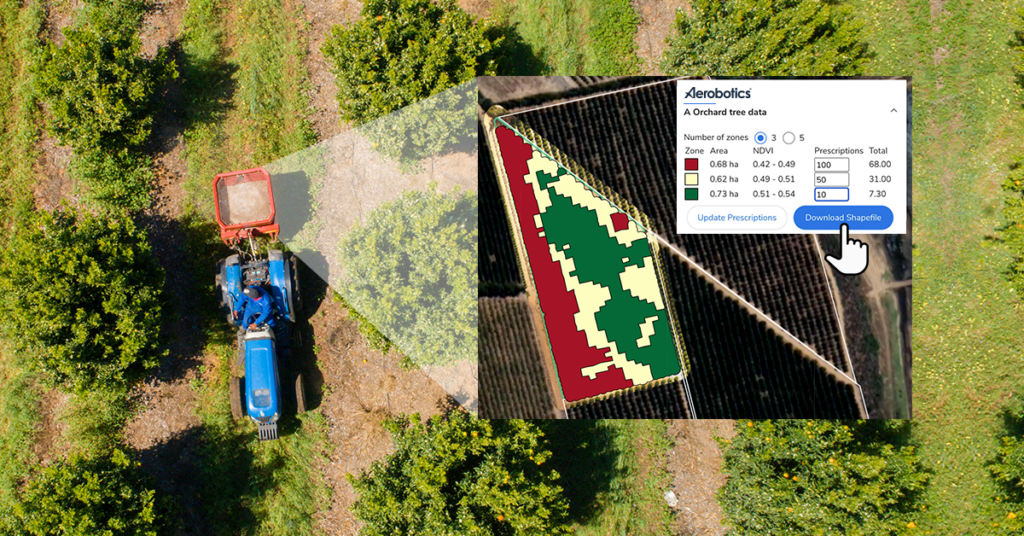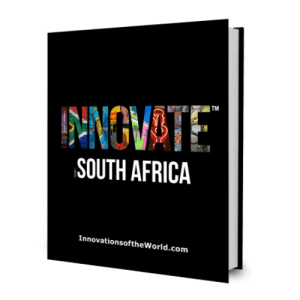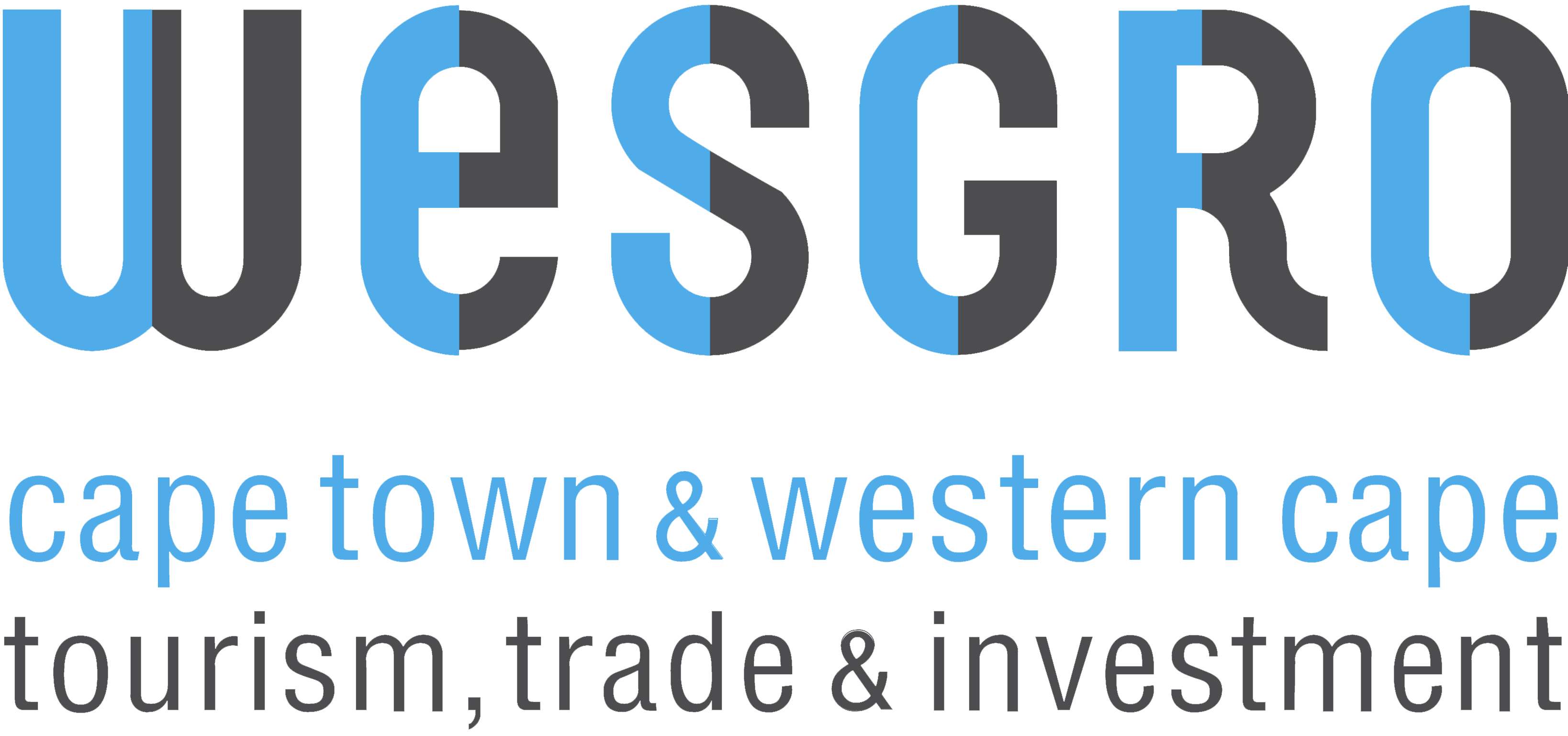Building Resilience Builds Competitiveness
Wesgro is the official tourism, trade, investment and film promotion agency for Cape Town and the Western Cape. It serves as the first point of contact for foreign investors and local companies. In addition, this agency attracts and facilitates national and international investment, works to grow the exports of products and services, and markets the Western Cape as a competitive business and travel destination.
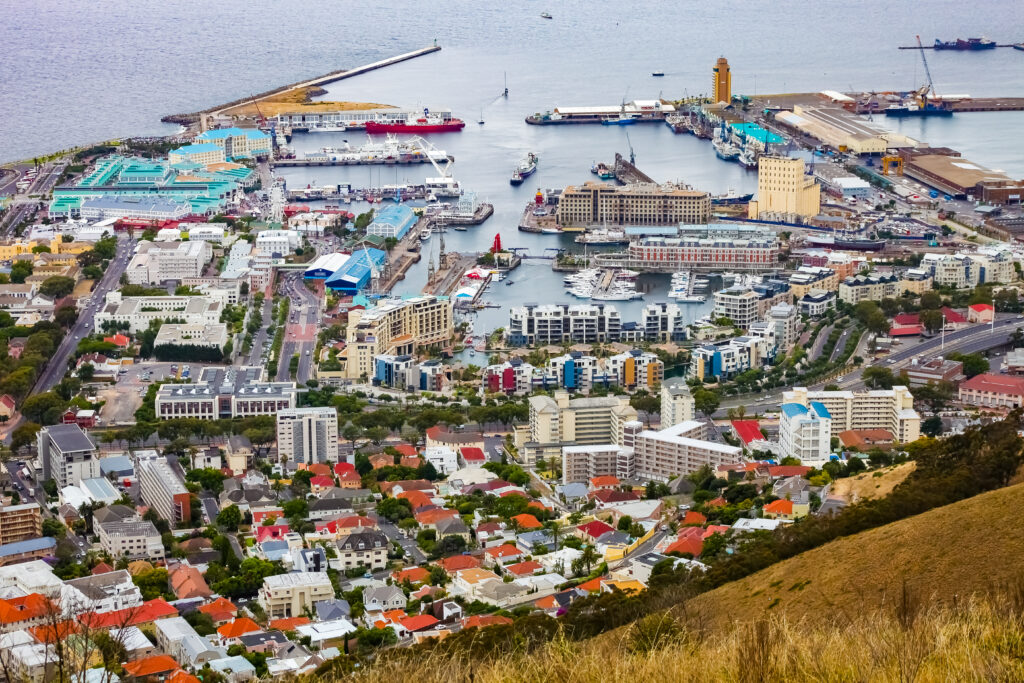
Cape Town is Africa’s leading digital city and a trailblazer in tech innovation and infrastructure.
For an agency like Wesgro, with almost every aspect of its mandate involving international economic activity, the COVID-19 pandemic changed everything. Yet the manner in which the Agency was able to adapt paid testament to the pioneering environment in which it is rooted.
Building Resilience
Shifting gears, Wesgro piloted initiatives and new ways of working to respond to the COVID-19 pandemic and steer the Western Cape’s economic recovery. These included effective digitisation for information sharing and matchmaking, leveraging existing relationships locally and internationally, and building networks to unlock new trade opportunities in brand-new ways.
Enabling Recovery
As the agency responsible for facilitating national and international investment into Cape Town and the Western Cape and expanding the export of products and services, Wesgro sought solutions to overcome these obstacles.
The Cape Trade Portal
www.capetradeportal.com
The Cape Trade Portal builds on lessons learned during the COVID-19 lockdown. The scale and scope offered by digital platforms increases opportunities for exporters to connect with buyers. It builds on the Cape’s reputation as an exporting powerhouse of premium, competitive, diverse and quality products and services.
The Cape Trade Portal supported by the ‘Made in the Cape’ digital brand marketing campaign was officially launched in 2022 by Wesgro – in partnership with Western Cape Government and the City of Cape Town. The effort assists local exporters in expanding their global footprint, as well as strengthening the Cape’s brand identity across global markets with an initial priority focus on the province’s top export markets internationally.
The Western Cape Government’s strategic plan for the next 5 years identifies growing exports as a fundamental component to economic recovery.
Developed as the virtual connection point for international buyers and Western Cape sellers of products and services, the Cape Trade Portal is a matchmaking tool and virtual home for proudly Cape-based products. Already boasting 450 registered exporters showcasing over 1600 products, the portal is well on its way to becoming a first port of call for international buyers. Local export-ready businesses can complete the simple onboarding process and take advantage of the increased visibility the digital solution provides.
Wesgro’s Trade team indicated that in addition to being a matchmaking tool, the Cape Trade Portal acts as a dedicated resource center providing tools, insights, and expertise to support Western Cape exporters on their journey. Via the platform, exporters can tap into training and mentoring programmes, keep updated on upcoming trade exhibitions, get support with non-tariff export barriers as well as assistance with regulatory and compliance requirements.
Looking to deepen and boost the brand story of the Cape as a region of origin of quality goods and services, Wesgro has developed a ‘Made in the Cape’ brand story, supported by a robust digital marketing roll-out. Looking to reinforce key attributes of quality, sustainability, value, and trust approved local exporters can download the ‘Made in the Cape’ logo, supporting brand story video, and white label marketing collateral assets from the portal, all of which can be utilised in their respective
marketing efforts.
Responding to requests from local exporters for increased promotional support, the logo development and marketing campaign draws on insights into perceptions of the destination globally. Ensuring a holistic approach, Wesgro engaged with local exporters and export councils to gain industry knowledge of the unique selling and pain points of Western Cape exported products, to effectively promote the province as the preferred source market for goods and services.
The campaign speaks to those seeking products produced with care and infused with the unique spirit of a particular people and place. The objective is to leverage the premium that can come from a recognised “region of origin”, which evokes a sense of authenticity different from “country of origin”. Made in the Cape does not stand apart from Made in South Africa – it remains proudly South African, but will follow a marketing strategy towards regionalism.
The campaign aims to strengthen the identity of Western Cape exports by connecting the Cape to quality through highlighting hard-hitting proof points across five products including but not limited to: rooibos (representative of Natural Products), citrus (representative of Agriculture), wine (representative of Wine and Spirits), software development (representative of Tech Innovation), and design (representative of Creative Industries).
Pioneers Magazine
Wesgro’s Pioneers magazine is a celebration of the tech ecosystem in Cape Town and the Western Cape. With four editions in the bank – and another on the way –Pioneers profiles the inspiring, groundbreaking companies operating in the province and the industry that supports them. Wesgro has profiled local companies that have shifted the needle on tech development, from click-and-collect delivery services and fully electric delivery vehicles to world-class intelligence tradecraft and innovative fintech, they are all fantastic examples of those driving the innovation and growth of the local tech space. The following five profiles serve to highlight just some of the work being done by the incredible local companies in the Western Cape. To find out more, download the full magazine here (https://www.wesgro. co.za/corporate/resources).

CompariSure: The bot next door
Fintech company CompariSure is a marketplace that connects insurers with consumers through their social media-integrated friendly chatbot.
10 to 15 years ago, insurers would create websites in an effort to sell their products and policies online. But in South Africa, where a large part of the market lacks access to computers, or has not purchased a product online, the corporates’ connection is ineffective or lost. This is where Jonathan Elcock and Matt Kloos found a gap in the digital ecosystem, which inspired the development of CompariSure.
“In South Africa, there are great insurers, but they often struggle to reach people in this new-tech era. Ninety-nine percent of people we speak to are on mobile phones. They don’t have computers and are not used to browsing websites. So we’ve built this conversational technology that enables people to access these great products. We are a distributor, selling products, using tech,” Matt explains.
Through a CompariSure Facebook ad, consumers can initiate a Facebook Messenger or WhatsApp conversation in which a chatbot takes them through the whole process of finding and securing a good deal, or better-suited product. “We pride ourselves on trying to find the best deals. We offer users the choice and give the consumer the power,” says Matt.
Usually, insurance ads call on users to share their cell numbers and create a string of ineffective phone calls and spam. CompariSure’s chatbot technology, on the other hand, can take a product and turn it into a conversation that consumers engage in. It is simple, user-friendly, and intuitive.
CompariSure’s greatest breakthrough has been with funeral cover. A consumer can share their details and add the people they would like covered, head to a check-out screen and get a policy document immediately. Most of the time, an email address is not even required. This was a conscious choice by CompariSure, as it is seen as an “archaic means of communicating” by younger generations.

The chatbot can handle complex conversations, but in a simple and understandable way.
They have also coded empathy into their AI to make the conversation warm and friendly. Their chatbot can comment on a user’s responses in an intuitive way, like expressing support and respect. “Chatbots are powerful. They are a brilliant way to share content with people and educate customers and gather their feedback,” Matt remarks.
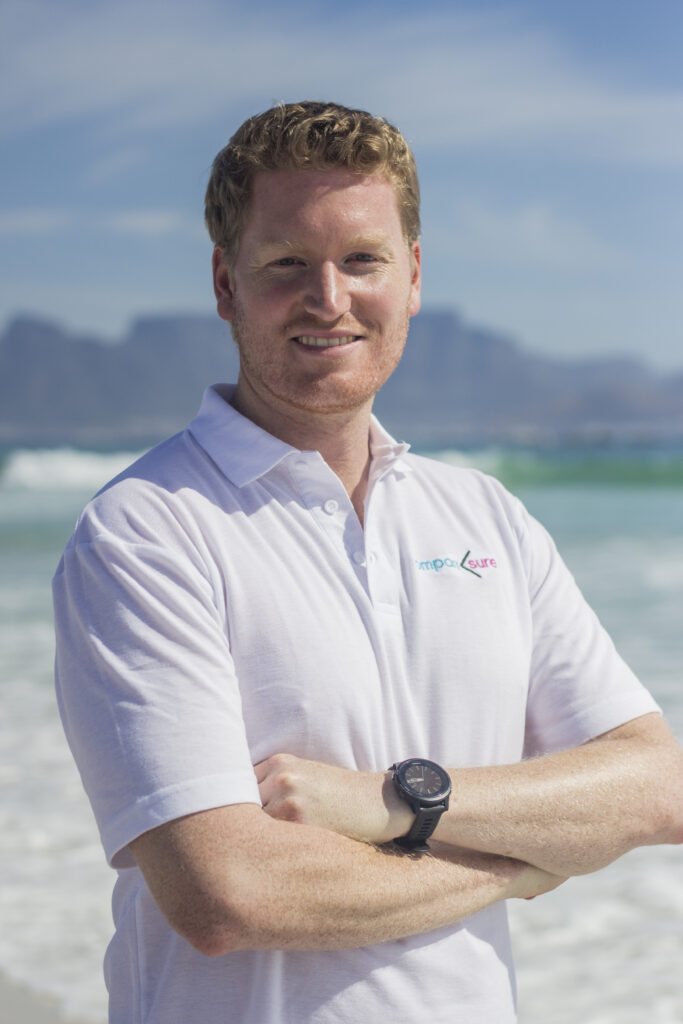
Ultimately, this is CompariSure’s differentiator: The chatbot can handle complex conversations related to financial products and insurance, but in a simple and understandable way.
Best of both worlds
The chatbot is also widely and easily accessible. A user can get information 24/7 and is not affected by power outages.
And if a user gets stuck or requires further guidance, a team of agents, who are monitoring the bot, can step in and assist, offering the user the best of both worlds.
From the agents’ perspective, work no longer entails repetitive administrative work, or collecting basic details; they are now specialised in human interaction and problem-solving skills. This deep end-to-end ability, with the human touch, if needed, is what sets CampariSure apart.
A major point of pride is CompariSure’s distribution ability. Since they are not limited to selling only one brand, they are able to find the best deal from a select group of brands and give the consumer the knowledge to make a choice. They have essentially democratised insurance, giving the user power and incorporating ethics into corporate.
Ultimately, this is what inspired the co-founders to start CompariSure. Jonathan worked in insurance and felt limited by the product offering and inability to maximise benefit for the consumer. Matt, who was working at an investment bank in London, quit his job and moved back to partner with Jonathan..
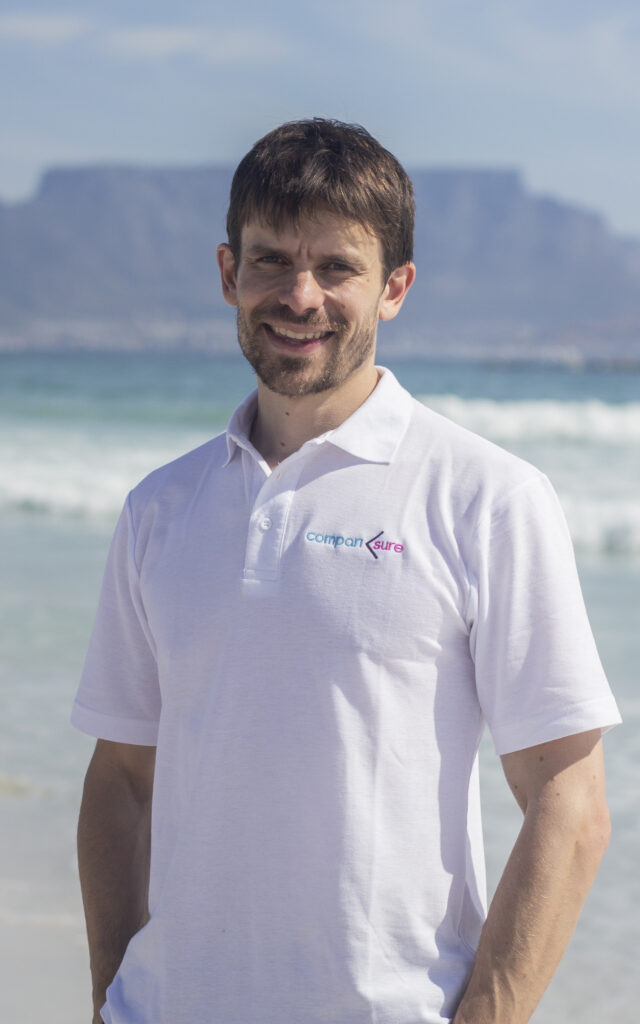
Changing people’s lives
Regarding the future, the opportunities are endless. CompariSure trialled a Zulu chatbot and were able to share content with customers they were otherwise, linguistically, blocked from. This flexibility of language is the tip of the iceberg in conversational commerce when it comes to expansion possibilities.
The fact that the tool is integrated into social media platforms also allows for a global reach. When the pandemic first started, the chatbot was able to check in with users, ask about their knowledge of the virus, and offer advice on how to best manage it. The technology became a data-collection tool with an educational purpose.
To date, CompariSure’s biggest success has been their reach into new markets. By interacting with 1,5 million South African users, and covering 100 000 lives (policies sold), they have helped people who are used to a brick-and-mortar, cash-based society buys products online.
What motivates Jonathan and Matt to be a part of the digital network is the ability to change people’s lives; knowing that, in the long run, the technology they’ve developed improves lives at the grassroots level. The user feedback echoes the founders’ motivation, consistently expressing gratitude for finding a great deal through a slick experience.
There is no doubt that this local tech business is at the start of a socially beneficial trajectory.
For more information about CompariSure, visit www.comparisure.co.za
Facebook: comparisure
LinkedIn: comparisure
Twitter: comparisure

FCB.ai: AI enhancing the world of finance
Local fintech company FCB.ai develops conversational AI solutions that help financial service providers acquire and retain customers by optimising customers’ experience.
Research indicates that call centres are increasingly inefficient, saturated and expensive, often not delivering the intended results in terms of sales conversion and customer satisfaction. This is why FCB.ai has been on a mission to develop solutions for the financial services industry and address
the inefficiencies of call centres.
Founded in Cape Town in 2016 by French entrepreneurs Antoine Paillusseau and Romain Diaz, FCB.ai kicked off its journey in the insurance sector by assisting clients with sales, customer retention, customer care and other core insurance functions. However, the more closely they worked with their clients, the more they realised that insurance companies require greater levels of support and advice. This support included setting up the proper AI conversational flows for their clients. Today, the company develops bespoke conversational AI solutions while reducing operating costs.
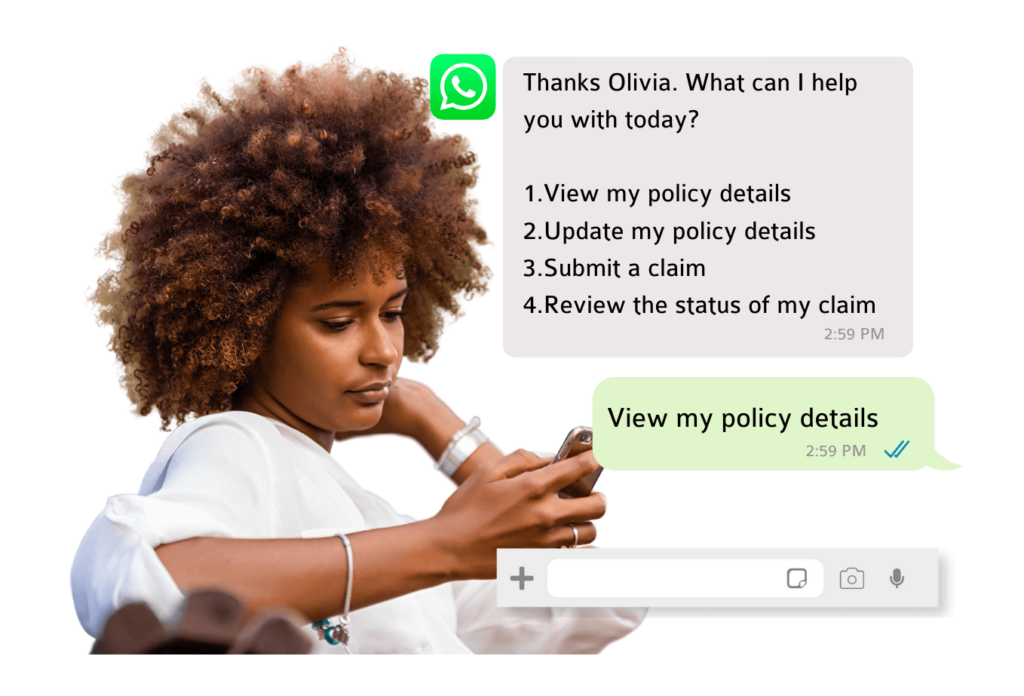
“Our goal with FCB.ai was to bring people closer to financial services with an interactive and fun experience, while enabling financial service providers to enhance customer experience and maximise business performance by saving time and money,” Antoine explains.
FCB.ai’s business model is based on both SAAS and a performance fee, and that is what sets them apart. They are not just a software provider to their clients, but an integrated partner that fully manages the solution and works closely with them to optimise performance over the long term.
“Our goal with FCB.ai was to bring people closer to financial services with an interactive and fun experience.”
The company’s platform brings people closer to financial services through an intelligent and human-like conversation, and offers a more intuitive and efficient customer journey, enabling clients to interact with dozens of potential and existing customers. Currently, their chatbots are facilitating an increase of up to 40% in converting quotes to insurance cover.
Transforming people’s lives
“We believe in positively transforming people’s lives through performance-driven digital solutions. We aim to become the best at selling financial service products via AI-powered conversational solutions,” says Antoine.
Some of the business’s key highlights include partnering with MTN to create a conversational AI solution for their MoMo customer acquisition, which enables customers to sign up for a MoMo account on their mobile phone in just a few minutes.
The business went on to create a persona for the registration solution called Siza. Siza adds something special to the experience in terms of memorability, and an overall more enjoyable experience for customers.
FCB.ai also teamed up with the Nashua Children’s Charity Foundation (NCCF) and Ozow to develop a first-of-its-kind, end-to-end conversational AI donation solution that enables benefactors to donate to the Foundation from their desktop or on their mobile phone in just a few seconds.
This conversational solution, known as NASH, is an AI-driven platform that allows donors to choose whether they would like to donate money, goods, or their time by engaging with NASH and completing a few simple, user-friendly steps.
With such a successful foray into the insurance sector, FCB.ai is looking to expand into Portugal, France and the UK, as well as West Africa.
For more information about FCB.ai, visit www.FCB.ai.com
Facebook: FCB.aiSolutions
LinkedIn: fcbai
Twitter: FCB_ai
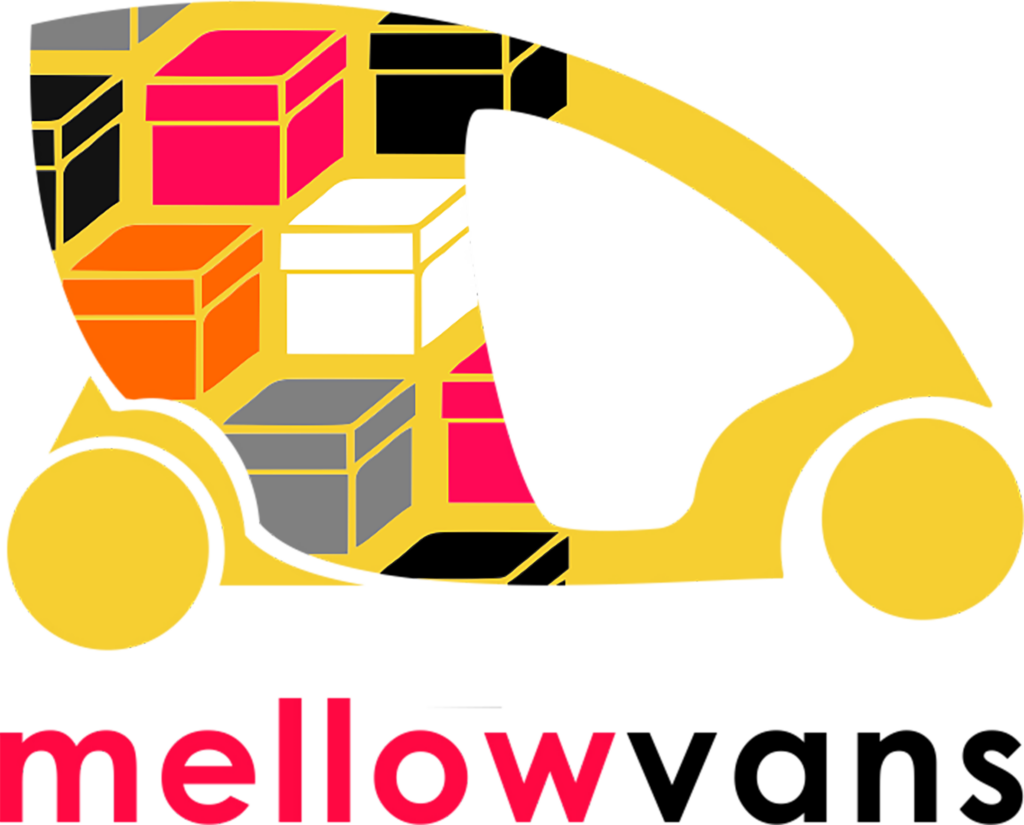
MellowVans: The future is electric
Stellenbosch-based start-up MellowVans is replacing both traditional motorcycles and light vans used for deliveries with their low-cost, emission-free, fully electric vehicles.
With each of their electric vehicles running at a mere 12 to 15 cents per kilometre in terms of operational costs, providing over 100 km of range, and featuring 2,4 cubic metres of space, MellowVans is revolutionising the delivery space locally, with an eye on moving abroad soon.
Initially launched as a passenger-based vehicle, MellowCabs pivoted to a cargo-orientated machine called the MellowVan, with the first prototype launched in 2018. The van has evolved massively since then: The prototype went through six iterations over the following two years, with the vehicle going into serial production this year.
“We have been working well with all the big retailers in South Africa,” says MellowVans founder, Neil du Preez. “We are currently operating all over the country, have sent vehicles to Botswana and Namibia, and are now focused on completing the tests for European vehicle requirements. We have one vehicle in the Netherlands, but once the tests are done, we will launch full-scale into Europe and the Middle East.”
The uptake from local retailers has been impressive, with the “big four” in South Africa already on board. Checkers is leading the way with their Sixty60 home delivery option, the Spar and Pick n Pay vehicles were launched in June 2021, and Woolworths is working with MellowVans on an upcoming project.
Meanwhile, courier company DHL Africa and e-commerce giant Takealot have both been with the company since its inception.
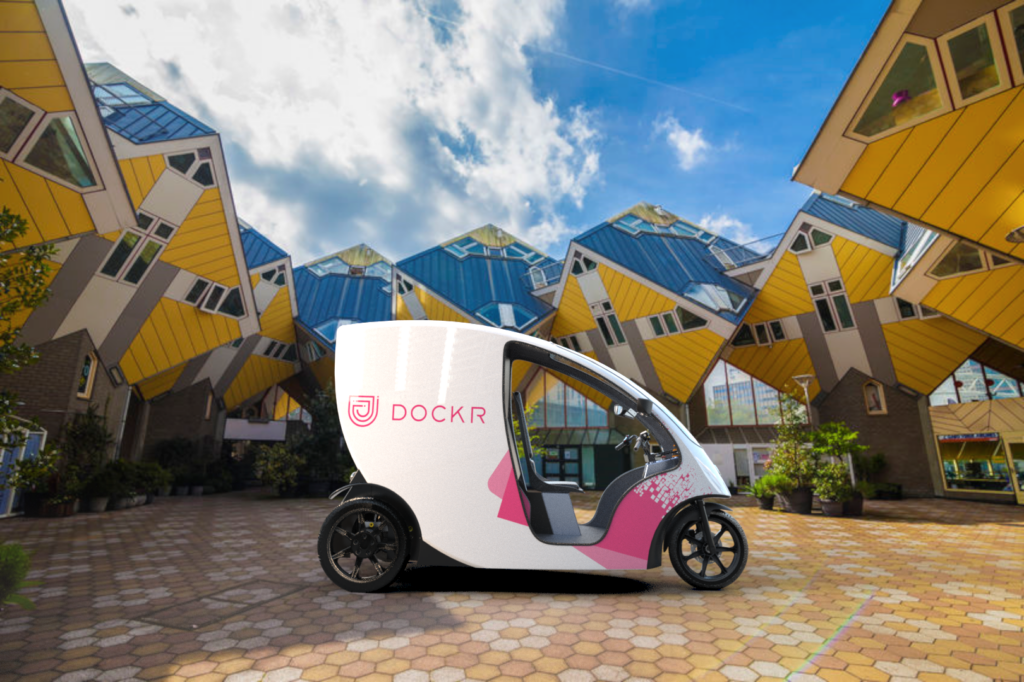
Environmental impact a driving force
Neil believes there are a number of things driving the positive reception, but none more so than the environmental considerations. Given that the average delivery vehicle does about 80 km per day, 240 days per year, a single MellowVan, which has zero direct tailpipe emissions, can save 20 kg of carbon emissions per day, or 4,9 tons per year.
” There are quite a few factors driving the conversion to electric delivery vehicles,” Neil explains. “South Africa is becoming more environmentally aware, and cost is also a big driver in the country.”
“I think the next leap forward for delivery technology will definitely be autonomous vehicles.”
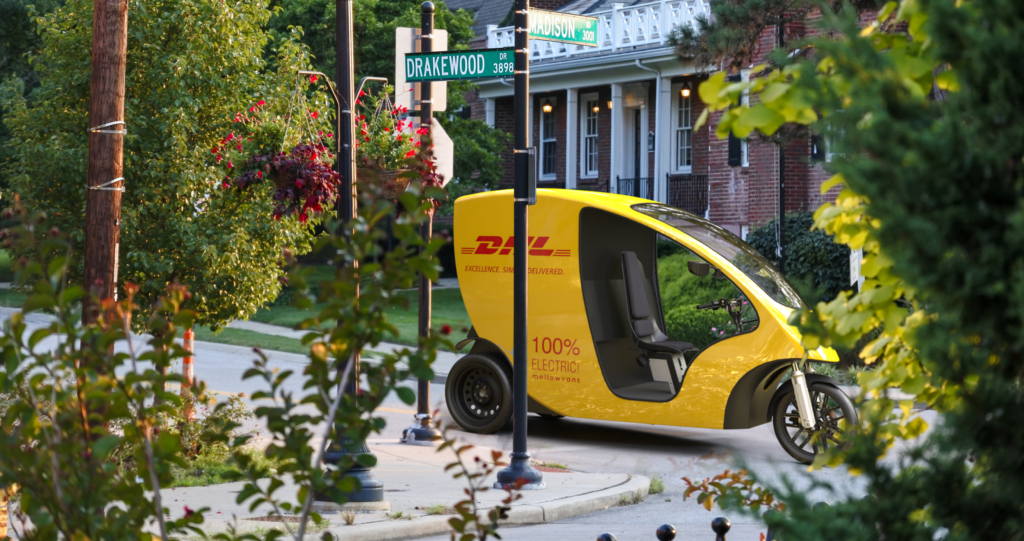
Keeping it local
While the rapid conversion to MellowVans is obviously an achievement in itself, Neil says that success is measured by more than the company’s financial gains, because it’s not all about the bottom line.
“One of the things I am most proud of is that we have built a business in Stellenbosch that employs local engineers, technicians and accountants, and we plow back into skills development on all levels. If you want to have an impact in South Africa, you need to create jobs.
“Our local content in the vehicle is another success: We’re close to 70% local, which I am really proud of because you don’t see a lot of hardware products made in SA anymore. We are pushing hard to keep it local, and I believe we are well positioned to supply markets like Europe and the Middle East.
“There are obviously challenges, but we are focused on building this vehicle and getting it into other markets. If a vehicle works in the South African delivery space, it is definitely going to work globally.”
The local production of the vehicle is giving the economy a welcome boost. “Assembly happens in Stellenbosch, while the manufacturing of subsystems happens at various other Western Cape companies. The chassis will be outsourced to a Wellington business, and for the shell and the body, we have a JV with a company based in Strand. Only the windshield has been outsourced to the Eastern Cape.”
All this is testament to the expertise available in the Western Cape, with its world-class tertiary institutions providing companies like MellowVans with a highly skilled pool of talent.
“We tap into Stellenbosch University, CPUT and UCT, so already there are good engineers and good technicians. It’s also not hard to entice highly skilled engineers from other provinces to the Western Cape, with the lifestyle and weather obviously huge drawcards as well.”
Driving into the future
“I think the next leap forward for delivery technology will definitely be autonomous vehicles, so we’re trying to align ourselves with autonomous technologies and service providers. Unfortunately, that is
predominantly Europe- and US-based as it’s too expensive to develop ourselves right now. Autonomous is also well suited to vehicles like ours. It’s already electric, so you can manipulate the entire vehicle with the software.”
With the delivery of medicine even more necessary in the current climate, Neil is also looking at new sectors such as pharmaceuticals. He believes it’s only a matter of time before major pharmacies move towards home deliveries to clients unable or unwilling to collect in person.
“As the COVID-19 pandemic increasingly affects countries with under-resourced health infrastructure and services, it is an ethical imperative to ensure that all people in all the countries of the world are able to access essential medicines. This includes those medicines that are under international control.
“COVID-19 will forever change retail, and its initial impact on e-commerce is creating challenges to online selling and services that no one could have imagined. The pandemic is accelerating consumer interest in both the purchase of goods online and the benefit of home deliveries.”
For more information about MellowVans, visit www.mellowvans.com
LinkedIn: mellowvans
Facebook: Mellowcabs

” Aerobotics is a precision farming company, which helps growers protect tree crops from pests and diseases using high-resolution drone imagery and artificial intelligence.”
Aerobotics is a precision farming company working with perennial growers to optimise their yield performance. Using aerial imagery and artificial intelligence, Aerobotics provides critical data on the performance of every tree. With regular drone flights capturing high-resolution imagery, the software zooms in on the performance, size and GPS location of each tree. In this way, Aerobotics offers growers around the world a product for minimising costs, targeting problem areas, taking action against pests and diseases, and maximising yields.
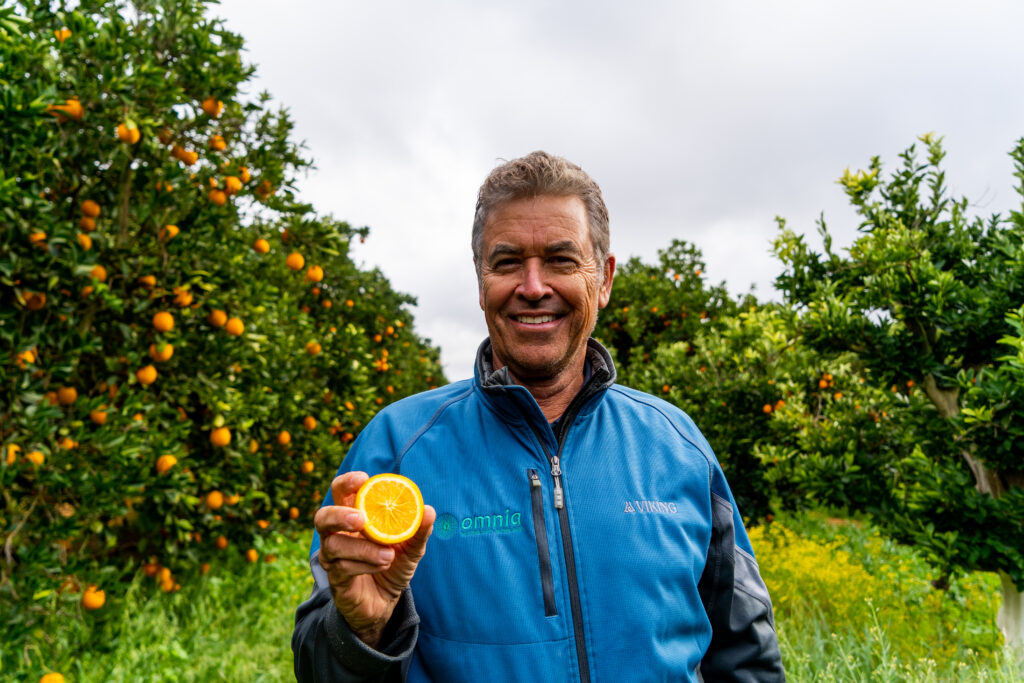
Positively contributing to the digital ecosystem With Cape Town being Africa’s tech capital, Aerobotics’ inception as a Cape Town-based agritech company, and its success that has followed, is a significant counterpart in this positioning. We have various clients in the Western Cape, who use Aerobotics’ solutions to make informed decisions about crop health and better manage production levels. In turn, farmers become more profitable and are able to create more jobs. At the same time, new and existing field workers are exposed to advancing technologies. Aerobotics’ software, seen on the Aeroview web- and Aeroview InField mobile apps, has been created for anyone to use. Its user-friendly interface enables even non-tech-savvy people to learn how the software interprets the aerial data that has been captured and fed into the system. This enables farm owners and workers to contribute to improving farm management.
Leadership in the digital ecosystem Aerobotics is leading the world in precision agriculture and the detection of limiting factors, including pests, disease and water stress. No other company in the world has the database of trees that Aerobotics has to identify underperforming areas for perennial crops.
Since its inception in 2014, Aerobotics has processed more than 100 million trees, saved farmers money and continues to help increase their yields by identifying problem trees, diseases and pests before they spread.
Showcasing success stories
1. Google Developers Launchpad Accelerator: In February 2017, Google brought its Launchpad Accelerator to Africa to assist startups in leveraging Google’s latest technologies to scale their businesses through mentoring. Aerobotics was selected to participate in the programme and joined 23 other startups from around the world for the start of the fifth cohort of Google’s Launchpad Accelerator at the Google Developers Launchpad Space in San Francisco.
2. Fast Company Top 10 Listing for Most Innovative Companies in Africa: The Fast Company announcement marks a milestone and achievement for Aerobotics, which has seen rapid growth, success and recognition over the last few years. In November 2018, Aerobotics announced that it had processed more than 10 million trees for farmers with its artificial intelligence and software, making its technology and solutions stronger and more accurate.
3. Trust and investment from an international company: Aerobotics recently expanded its series funding round from $2 million to $4.6 million enabling us to expand beyond South Africa to the USA and the rest of the world.
4. Africa Tech Week – Best Technology Company in Africa: The first annual Africa Tech Week featured technology thought leaders and innovators from around the African continent. The award recognises technological achievements with a sound strategy in place to ensure successful delivery of its commercial advantages and build shareholder value. Criteria for the award included demonstrating an outstanding and innovative product or service and relevant achievements in the tech industry.
